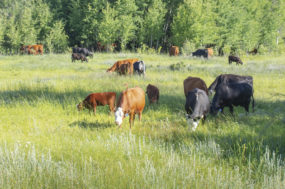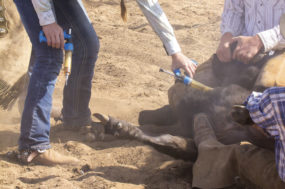Here comes the hard part. How would you react? Would you ask him what he’s doing there? Engage him in a discussion? Invite him to get a closer look? Point out the fact you have a gun rack in your truck?
Odds are if you haven’t had this experience, you will one day, and it’s worth preparing yourself and your crew with a proper way to respond.
That hypothetical situation was just one of the points raised at the International Cattle Welfare Symposium held in July at Iowa State University. The point made repeatedly: Don’t be offended or defensive when the public wants to know how you do your job.
Those who raise livestock and produce food are a small segment of society, but their impact on society’s health and survival is enormous. So it’s only natural those who eat the food produced by others will want to know how the work is done.
It’s a realistic expectation because this is their food we’re talking about. And it’s natural for people to be concerned about what they put into their mouths. If they aren’t comfortable with it – they don’t buy it.
Studies also show that consumers are growing more distrustful in the information explaining how they get their food. It doesn’t matter what’s said on the label, the menu or The New York Times. But when they see and learn for themselves, they believe it.
Given that background, it’s critical today’s producers understand their consumers and be willing to answer questions, understand concerns and listen to their solutions. Read that sentence again. This is especially noteworthy on issues of animal welfare, a topic creating many questions from those far removed from the farm.
Expect some of those questions to be uncomfortable or dicey. Consumers will ask about the treatment of animals and procedures such as castration, dehorning, branding and euthanasia.
As long as producers answer in a forthright way, explaining their methods, challenges and motivation, in most instances it will result in understanding. Consumers know agriculture requires a committed lifestyle, an intense knowledge of the land, climate and economy.
Armed with the information they seek, today’s consumers can build greater appreciation for the labor and resources you need to succeed.
But just as important is for farmers and ranchers to be receptive to consumers’ curiosity and their concerns about the product. If we treat their questions with hostility, it’s hostility that we’re bound to receive in return.
As more than one speaker put it at the Cattle Welfare Symposium, “They don’t care how much you know until they know how much you care.” ![]()








